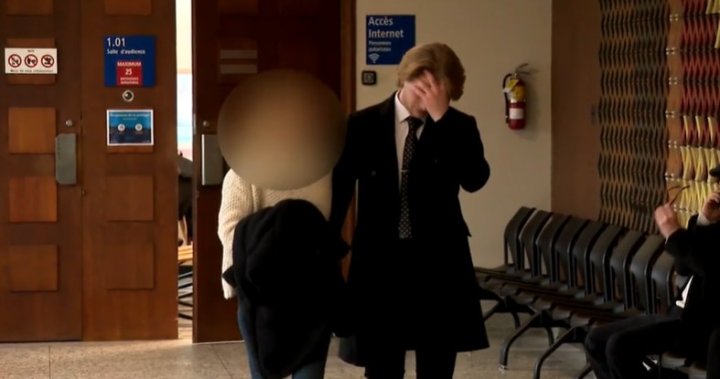Noah Corson, a former Quebec Major Junior Hockey League (QMJHL) player for the Drummondville Voltigeurs, has been sentenced to jail following his conviction in a sexual assault case in Quebec. At 18 years old during the incident, Corson faced adult legal proceedings, while his two co-accused, both 17 at the time, were handled in youth court. The ruling highlights the judiciary’s firm stance on sexual assault cases involving young adults and minors, reaffirming that athletic status does not grant immunity from legal accountability.
Details of the Incident and Legal Proceedings
The case against Noah Corson emerged after allegations of sexual assault were made, leading to a thorough investigation by local authorities in Quebec. The incident occurred when Corson was 18 years old, placing him within the jurisdiction of adult courts. His two co-accused, both minors aged 17, were tried in youth court as per Quebec’s legal framework. The differentiation in court proceedings underscores the province’s adherence to age-specific judicial protocols.
Sentencing and Judicial Rationale
Following a comprehensive trial, the court found Corson guilty of sexual assault. The sentencing reflects the court’s commitment to addressing sexual crimes with severity, regardless of the accused’s social or professional standing. Legal representatives emphasized that the verdict serves as a precedent reinforcing that participation in professional sports does not exempt individuals from the consequences of unlawful behavior.
Impact on Quebec’s Sporting Community
The ruling has resonated across Quebec’s sporting circles, prompting discussions on athlete conduct and accountability. The Drummondville Voltigeurs and QMJHL have both issued statements underscoring their condemnation of sexual misconduct and their dedication to fostering a safe environment for all participants. This case has spurred calls for increased education and preventive measures within junior hockey organizations.
Broader Implications and Public Response
Public reaction has been mixed, with a strong emphasis on supporting victims of sexual assault and advocating for robust legal responses. Advocacy groups have welcomed the judgment as a critical step in holding perpetrators accountable, while also calling for broader societal efforts to combat sexual violence. Legal experts note that the outcome reinforces Quebec’s legislative stance on protecting vulnerable individuals and deterring future offenses.
Conclusion
Noah Corson’s sentencing marks a significant moment in Quebec’s ongoing efforts to address and prevent sexual assault. The case highlights the judiciary’s resolve in treating such offenses with the seriousness they warrant, emphasizing that legal accountability transcends age, profession, or status. Continued vigilance and education remain essential components in supporting victims and fostering safe communities.
Noah Corson’s sentencing underscores the unwavering commitment of Quebec’s judicial system to uphold justice in sexual assault cases, particularly those involving young adults and minors. This case reinforces that athletic careers or public profiles do not provide immunity from legal consequences. It also serves as a catalyst for ongoing dialogue within sports communities about ethical conduct and the importance of preventive education. Moving forward, sustained efforts from legal authorities, sports organizations, and advocacy groups will be vital in promoting accountability and ensuring the safety and dignity of all individuals.

